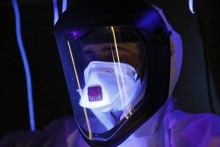WHO warned of risks of commercial exploitation of Ebola

Patti Rundall, of IBFAN, quoting the joint statement said
“Ebola is a disaster that was just waiting to happen. It is the result of harmful structural adjustment policies, cruel wealth disparity that is on the rise and a lack of political support for health systems. It also demonstrates that the era of verticalization of health programmes – dealing with diseases one by one – and the PPPs associated with it, is not what the world needs.
WHO is now expected to deliver solutions fast. But the truth is Ebola has been waiting for Research and Development for 40 years. Only now, when the world’s attention is focused on this global crisis, are corporations springing into action. WHO must reassert itself as the global leader in health. While tackling this problem, it must ensure that it does everything possible to prevent commercial exploitation of public health.”
WHO was asked four pertinent questions:
- Has WHO the capacity to ensure a good public health deal with Big Pharma?
- Can and will WHO supervise clinical trials and demand appropriate regulation of the vaccines?
- What will be the conditions for access to the needed vaccines, in terms of price control, and
- What intellectual property management will be set in place, given the threat the virus is posing ?
The NGOs highlighted the working and employment conditions, health and safety needs of national health workers – who are critical players in rebuilding West Africa’s health systems. This health workforce, diminished and discouraged, are the protagonists of the future. National health workers and their representatives must be engaged as civil society actors in the UNMEER partnership, as are Médecins Sans Frontières and the IFRC.
OXFAM also made an intervention during the debate, calling for health services to be publicly funded through progressive taxation and publicly delivered.
Download a PDF of the statement
- END -
For more information see PSI's strategy, focused on a trade union response to the crisis.

